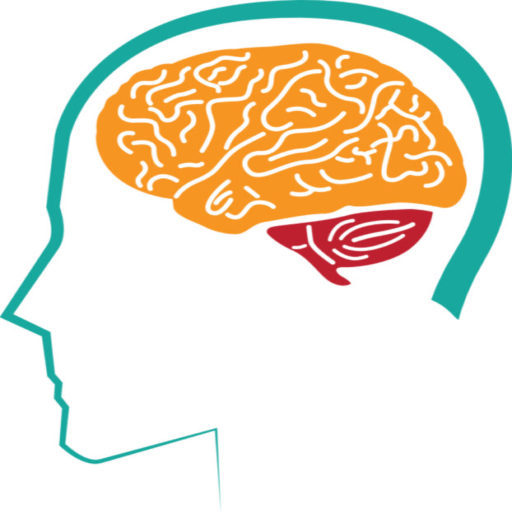Introduction
The connection between nutrition and mental health is a topic of growing interest in the field of psychology and psychiatry. While the impact of diet on physical health has long been recognized, emerging research suggests that what we eat also plays a crucial role in our mood, emotions, and overall mental well-being. In this article, we will examine the intricate link between nutrition and mental health, explore specific nutrients that support brain health, and provide simple dietary changes that can help improve mental health.
The Diet-Mood Connection
Understanding the Gut-Brain Axis
The gut and the brain are intricately connected through a bidirectional communication system known as the gut-brain axis. This system allows the gut to send signals to the brain and vice versa, influencing both physical and mental health. The composition of the gut microbiome, which is heavily influenced by diet, plays a significant role in this connection.
Inflammation and Mental Health
Chronic inflammation is a known contributor to various mental health conditions, including depression and anxiety. Certain dietary patterns, such as the consumption of highly processed and inflammatory foods, can lead to increased inflammation in the body. Conversely, an anti-inflammatory diet can help reduce the risk of mood disorders.
Nutrients That Support Brain Health
1. Omega-3 Fatty Acids
Omega-3 fatty acids, particularly eicosapentaenoic acid (EPA) and docosahexaenoic acid (DHA), are essential for brain health. They are found in fatty fish like salmon, mackerel, and sardines. Omega-3s have been linked to a reduced risk of depression and improved mood regulation.
2. B Vitamins
B vitamins, including B6, B9 (folate), and B12, are crucial for neurotransmitter synthesis and function. Deficiencies in these vitamins have been associated with an increased risk of depression. Good dietary sources include leafy greens, beans, nuts, and fortified cereals.
3. Antioxidants
Antioxidants, such as vitamins C and E, help protect the brain from oxidative stress. They are found in fruits (e.g., berries, citrus fruits) and vegetables (e.g., spinach, broccoli), as well as in nuts and seeds.
4. Magnesium
Magnesium is essential for nerve function and mood regulation. Magnesium-rich foods include leafy greens, nuts, seeds, and whole grains.
5. Zinc
Zinc plays a role in neurotransmitter production and function. It is found in meat, dairy, nuts, and whole grains.
Simple Dietary Changes for Improving Mental Health
1. Prioritize Whole Foods
The foundation of a mental health-friendly diet should be whole, unprocessed foods. Aim to consume a variety of fruits, vegetables, lean proteins, whole grains, and legumes. These foods provide essential nutrients and are generally lower in inflammation-promoting additives.
2. Increase Omega-3 Intake
Incorporate fatty fish like salmon, trout, and sardines into your diet at least twice a week. If you’re not a fan of fish, consider taking an omega-3 supplement, such as fish oil capsules or algae-based supplements.
3. Embrace Leafy Greens
Leafy greens like spinach, kale, and Swiss chard are rich in folate and magnesium. Add them to your salads, smoothies, or sautéed dishes to boost your nutrient intake.
4. Snack on Nuts and Seeds
Nuts and seeds, such as almonds, walnuts, chia seeds, and flaxseeds, provide essential nutrients like magnesium, zinc, and healthy fats. Snacking on these can support brain health.
5. Limit Sugar and Processed Foods
Excessive sugar consumption and highly processed foods have been linked to increased inflammation and a higher risk of mood disorders. Reduce your intake of sugary beverages, candies, and processed snacks.
6. Stay Hydrated
Dehydration can negatively impact mood and cognitive function. Ensure you’re adequately hydrated by drinking water throughout the day.
7. Moderate Caffeine and Alcohol
While moderate caffeine consumption can have cognitive benefits, excessive caffeine or alcohol intake can disrupt sleep and contribute to mood disturbances. Limit consumption, especially in the evening.
8. Mindful Eating
Practice mindful eating by savoring your meals and paying attention to hunger and fullness cues. Avoid distracted eating, which can lead to overeating and poor food choices.
Conclusion
The link between nutrition and mental health is a compelling area of research that underscores the importance of a balanced diet for overall well-being. While diet alone cannot replace traditional mental health treatments, it can significantly complement therapeutic approaches and contribute to better mental health outcomes.
Understanding the gut-brain axis and the role of inflammation in mental health emphasizes the importance of making informed dietary choices. By prioritizing whole foods rich in brain-supporting nutrients like omega-3s, B vitamins, antioxidants, magnesium, and zinc, individuals can take proactive steps to improve their mental well-being.
Simple dietary changes, such as increasing the consumption of leafy greens, nuts, and fatty fish, while limiting processed foods and excessive sugar, can have a positive impact on mood and cognitive function. Practicing mindful eating and staying hydrated are additional strategies to support mental health through nutrition.
Ultimately, adopting a nutrient-rich, anti-inflammatory diet is a valuable investment in one’s mental health and overall quality of life.
References
- Parletta, N., Zarnowiecki, D., Cho, J., Wilson, A., Bogomolova, S., Villani, A., … & O’Dea, K. (2017). A Mediterranean-style dietary intervention supplemented with fish oil improves diet quality and mental health in people with depression: A randomized controlled trial (HELFIMED). Nutritional Neuroscience, 22(7), 474-487.
- Jacka, F. N., O’Neil, A., Opie, R., Itsiopoulos, C., Cotton, S., Mohebbi, M., … & Berk, M. (2017). A randomised controlled trial of dietary improvement for adults with major depression (the ‘SMILES’ trial). BMC Medicine, 15(1), 23.
- Sarris, J., Logan, A. C., Akbaraly, T. N., Amminger, G. P., Balanzá‐Martínez, V., Freeman, M. P., … & Jacka, F. N. (2015). Nutritional medicine as mainstream in psychiatry. The Lancet Psychiatry, 2(3), 271-274.
- Parletta, N., Niyonsenga, T., & O’Dea, K. (2016). Markers of depression and anxiety in the remission phase of inflammatory bowel disease. Journal of Behavioral Medicine, 39(2), 256-265.

